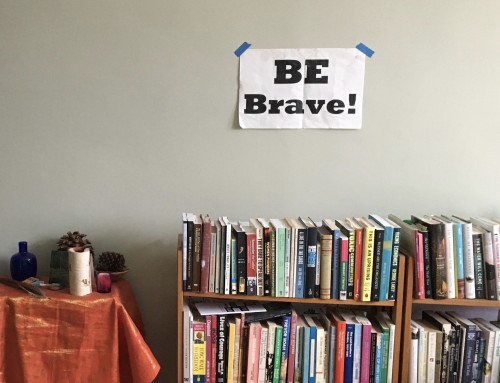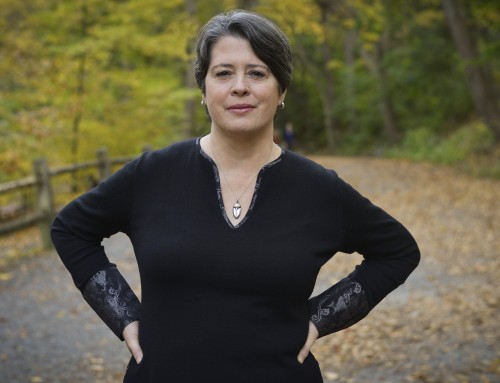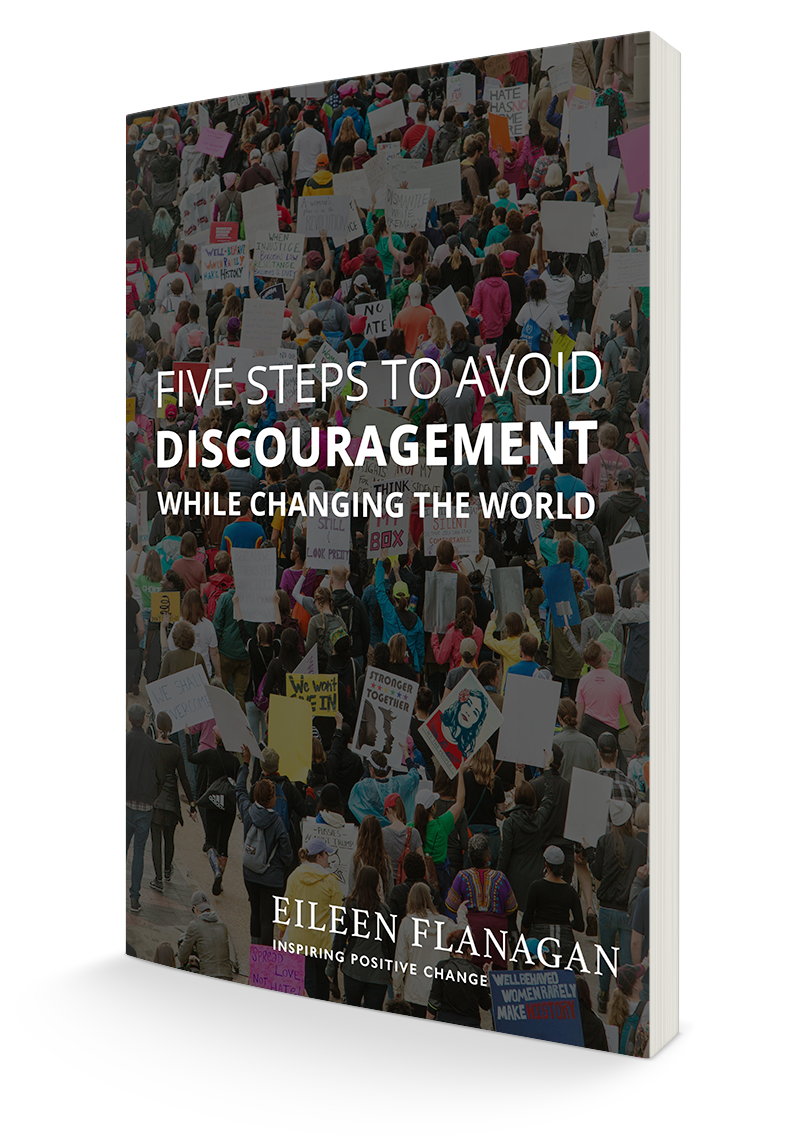I don’t think of myself as a defensive person. I try to listen to criticism with an open mind, see what I can learn from it, and dismiss anything that doesn’t ring true after considering it. I said, “I try.” Twice recently I’ve found my back up. My first impulse was to analyze the poor communication skills of the people who prompted the defensiveness. “If she had worded that differently,” I thought, “I would have listened more calmly. I should explain to her how to deliver criticism in a more effective way.”
This first train of thought led me to recall times that I’ve made other people defensive, which sometimes happens when I express an environmental concern to friends who don’t share my habit of composting every tea bag. I am sometimes aware of coming off as preachy and wonder how to be true to myself without alienating my friends, for example, when they want to go to a restaurant that uses only paper plates and plastic forks and I prefer not to. It’s not just a matter of wanting to be liked, though I’m sure that is a dynamic. I know that I am less likely to change my behavior when the person encouraging me to change seems self-righteous, while I am more likely to be inspired to change when I feel challenged in a respectful way. Knowing this tendency in myself, I suspect that speaking to people with empathy and respect increases my effectiveness, as well as my likeability, though it’s not always easy to find the right balance. I remember once feeling criticized by a fellow Quaker because I hadn’t brought my own re-useable coffee thermos to a conference where I had traveled several hundred miles by train with a kid in order reduce the environmental impact of our travel. “Give me a frickin break,” I thought defensively.
Of course, a poorly-worded critique that doesn’t hit its mark probably won’t provoke much of a reaction. The coffee mug comment upset me precisely because I try to limit my environmental impact and frequently fall short of my own ideals. It raises the question “How much is enough?”—a question I find difficult to answer as a middle-class American parent whose whole lifestyle involves endless consumption. Likewise, the two recent incidents that made me defensive were around issues where I feel I’m trying, but falling short by my own standards. It took a few hours, but eventually I realized that instead of focusing on what the other people should have said, I needed to look at why their remarks triggered my defensiveness. This was confirmed when I spoke to one of the people and learned that her comment was not intended as a criticism at all, something that in hindsight I suspect is true of the second person as well.
When I get that prickly feeling, rather than analyzing the other person’s delivery, the bigger challenge is to look at myself, the person I’m most likely to be able to change anyway. It’s that Wisdom to Know the Difference thing again, of course.




Exactly. I need to remember this more often, myself.
Another well written and thoughtful post! One thing I like about reading your writing is that you always seem open to the idea that you are not perfect. I try to always figure out ways that I can be a better person. One of the things that I am always working on is trying not to be judgmental. For me, it’s a fine line between giving advice and being judgmental. Sometimes I try to present myself in such a way that I am just telling someone how I prefer to do something and hoping that maybe they would change the way they do things. But then I turn around and wonder if I’m just trying to disguise/justify my judgments. It’s all so interesting. On a funny note and maybe more related to your post: years ago, a colleague said to me "maybe you are being defensive because there is some truth in what I said". Of course I just got more defensive but now I realize he was probably right!
I know I am really late in reviewing your book, but have had trouble lately finding the time to read but have finally finished. I am going to my own blog right now to write and post a review!
Thanks, Elise and Stephanie. No, I’m definitely not perfect! But my imperfections give me material to write about, right?
Thanks also for the review, Elise. Glad you found the book positive and thought provoking.
I *love* this 🙂 For me, I feel angry when I need to look at something in myself.
This post reminds me of when Parker Palmer says we do not need to advise, save or fix anyone… our culture so encourages that, huh?
*Thanks* for your thoughts… I am so enjoying them 🙂